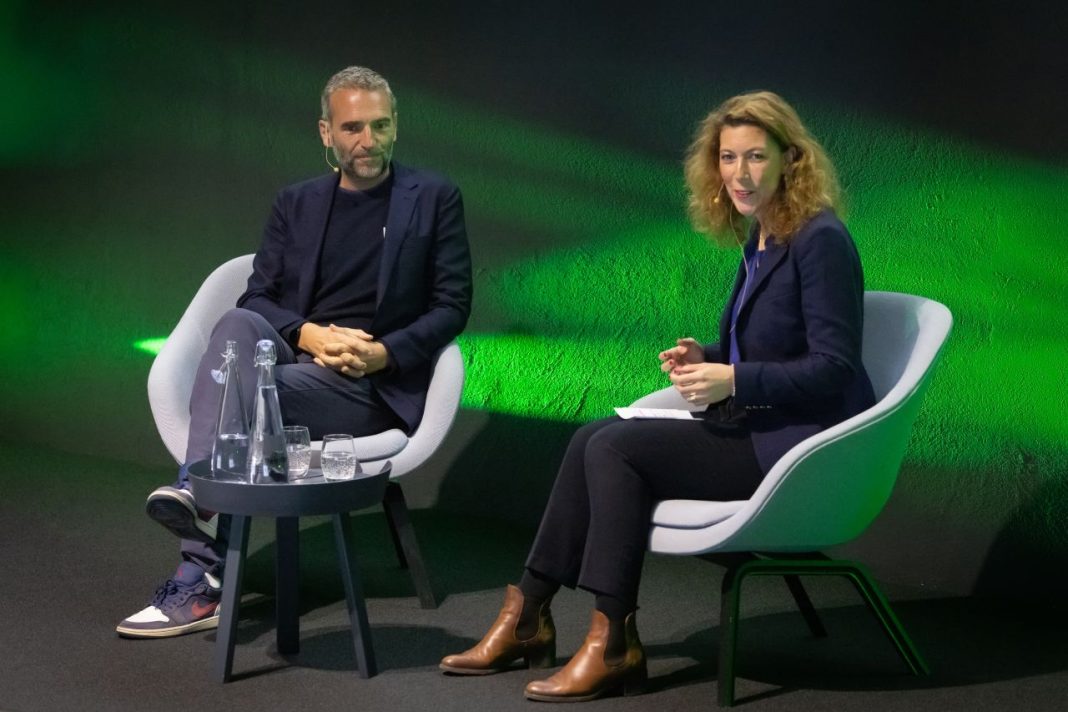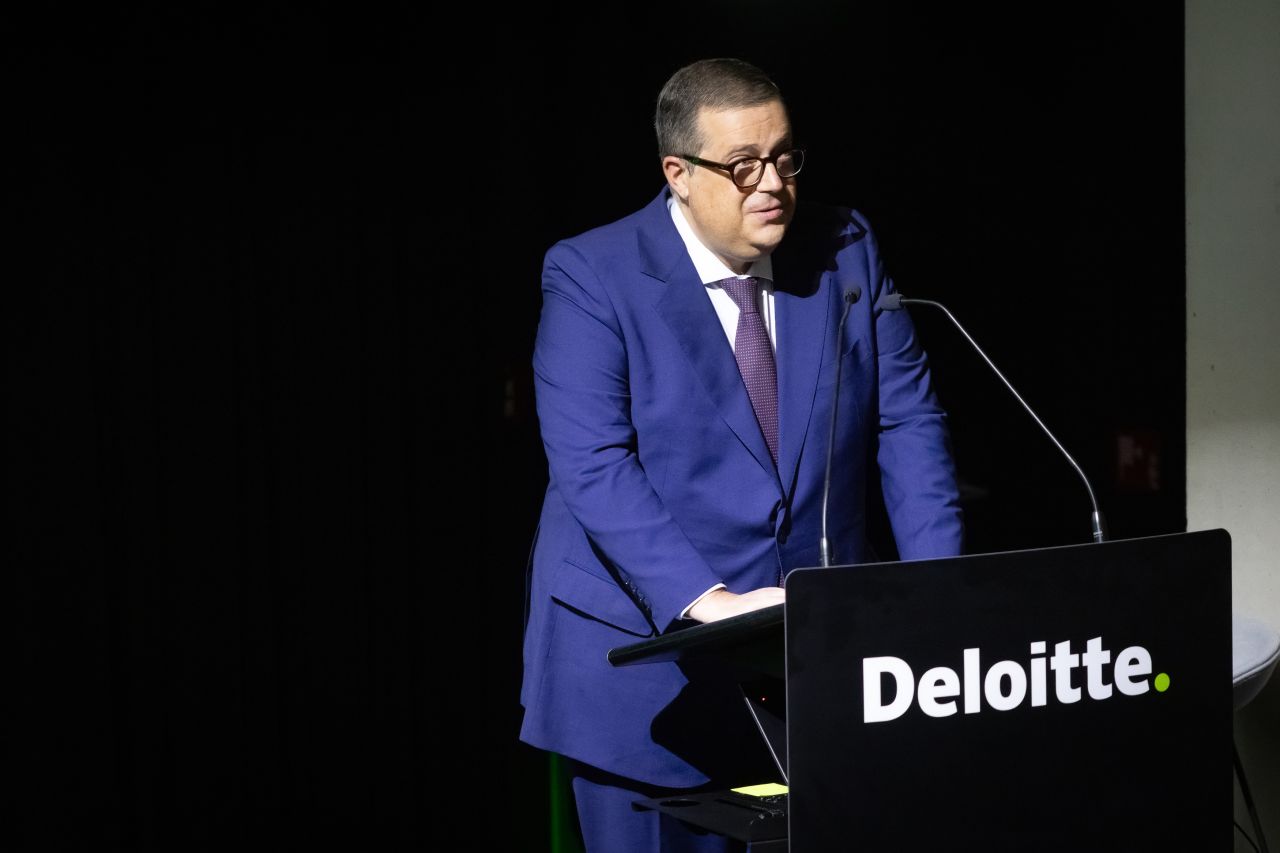At Deloitte Luxembourg’s MOMENTUM 2025 conference, the message was clear: sustainability has moved beyond buzzword status. The real challenge? Turning momentum into meaning!
With an evocative opening speech that set the tone for the day, the event began not with self congratulation but with a call to accountability. “MOMENTUM is a name we chose deliberately and it’s not for its freedom. MOMENTUM is not a slogan, it’s physics. It’s what happens when mass meets movement, when conviction acquires velocity, when just enough pressure builds to shift what once seemed impossible,” said John Psaila, CEO & Managing Partner at Deloitte Luxembourg.
In a year marked by climate urgency and regulatory acceleration, MOMENTUM 2025 served as a reality check, and a rallying cry, for Europe’s public and private sectors. Whether in finance, policy, or industry, the through line was unmistakable: sustainable transformation demands clarity, commitment, and courage.
This year’s MOMENTUM edition was launched with an inspiring fireside chat on purpose, innovation, and investment. Oriane Schoonbroodt, Partner at Deloitte, sat down with Alexandre Mars, serial entrepreneur, philanthropist, and founder of Blisce, to discuss sustainable finance and how it’s shaping the future.
“[…] it should not be a cost, but a reason as to why we thrive as a business. Today two-thirds of our business is switching to recycling.”
Alexandre Mars shared a candid perspective on the current challenges and opportunities in Europe and the US, emphasizing that while the sustainability agenda may be under pressure, it remains vital to long-term resilience. Reflecting on his experience between both continents, he noted Europe’s growing recognition of the need to foster its own path in climate tech and digital sovereignty, albeit acknowledging the headwinds from delayed tech investments and fragmented political will. “I spent my life between the US and Europe. Maybe not to have the perfect vision, but maybe to a slightly different vision,” said Mars.
Sustainable Investing, Impact or Illusion?
Moderated by Deloitte’s Chloé Piquet, the day’s first panel dove headfirst into a question many have tiptoed around: Has asset management truly delivered on the promise of sustainable investing, or merely branded business as usual?
François Ralet, Head of Management Company at Wellington Luxembourg, was direct, in that we’ve built frameworks, yes, but too often the strategy stops at the PowerPoint. Ralet emphasized the disconnect between ESG policy and execution, highlighting the need for integration over presentation.
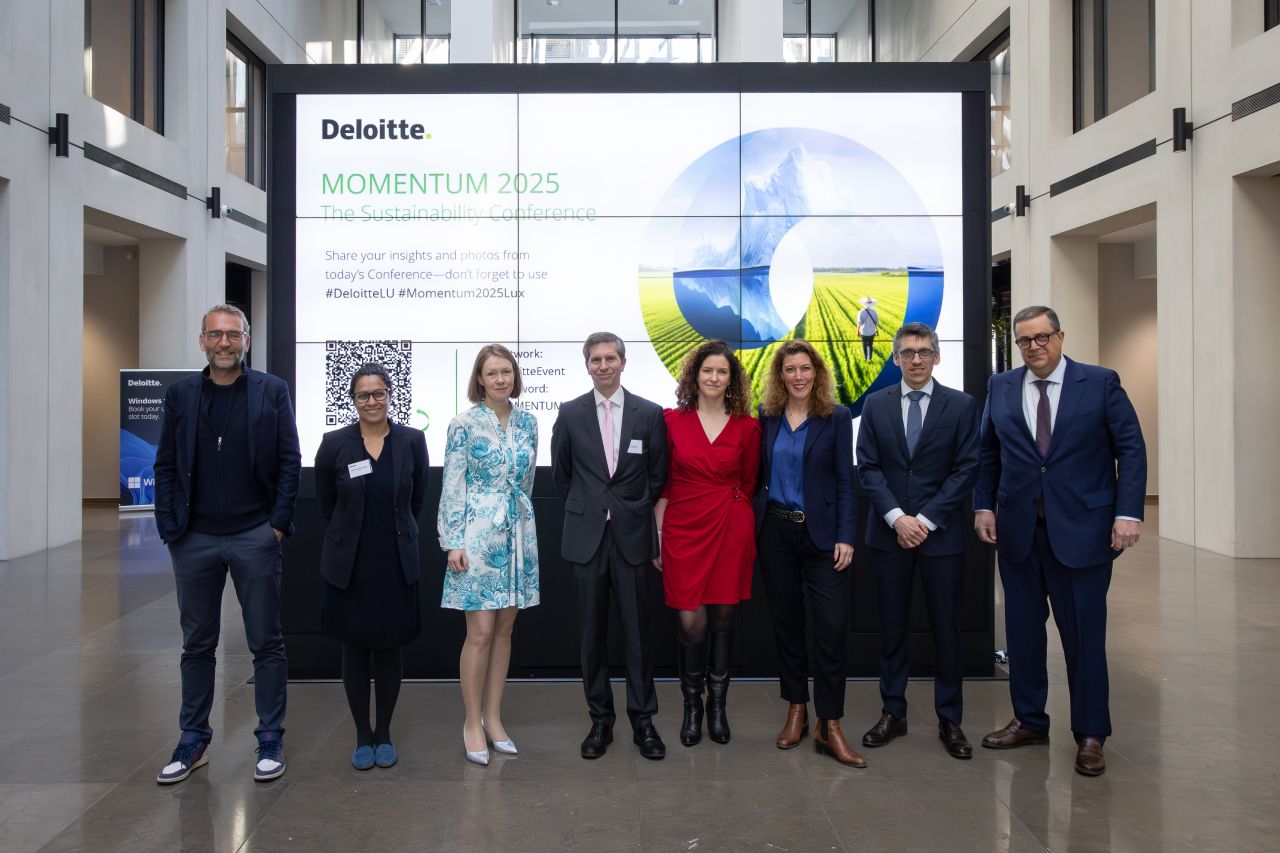
Shaneera Rasqué, ESG Coordinator at the CSSF, brought a strong regulatory perspective, revolving around that it’s no longer enough to say you’re aligned with ESG. That we must show it, transparently, consistently, and credibly. She pointed to the changing EU disclosure frameworks and investor expectations as key drivers of accountability.
Sergio Venti, Partner at Deloitte Luxembourg, added a sobering reality check, that sustainable finance has matured, but not yet transformed. That we still see performance metrics outpacing impact metrics, and that this has to shift. He stressed the need for a dual lens, profit and purpose, when assessing long-term financial performance.
The message of the panel was clear to hear, that sustainable investing cannot rest on declarations. It must be verified, lived, and measured, not just by returns, but by results.
“Movement without meaning is noise. Movement with meaning is impact.”
Thrive or Fade, Redefining Sustainability’s Role in Europe’s Growth
Moderated by Deloitte Partner Bettina Werner, the second session convened across sectors to discuss how Europe’s economic resilience is being redefined through the lens of sustainability.
Carlos Eduardo Martins, Principal Portfolio Manager at ESM, opened with a call for cohesion, noting that a fragmented approach to the issue will fail, and that what we need is systems-thinking, cooperation between industries, regulators, and communities. His message was clear, to emphasize that silos are the enemy of scalable change.
Luxembourg’s Ministry of Economy was represented by Jérôme Petry, who pointed to circularity as a competitive advantage, that transition is not a sacrifice, it’s an innovation engine. Circular business models aren’t just good for the planet, they’re smarter economics.
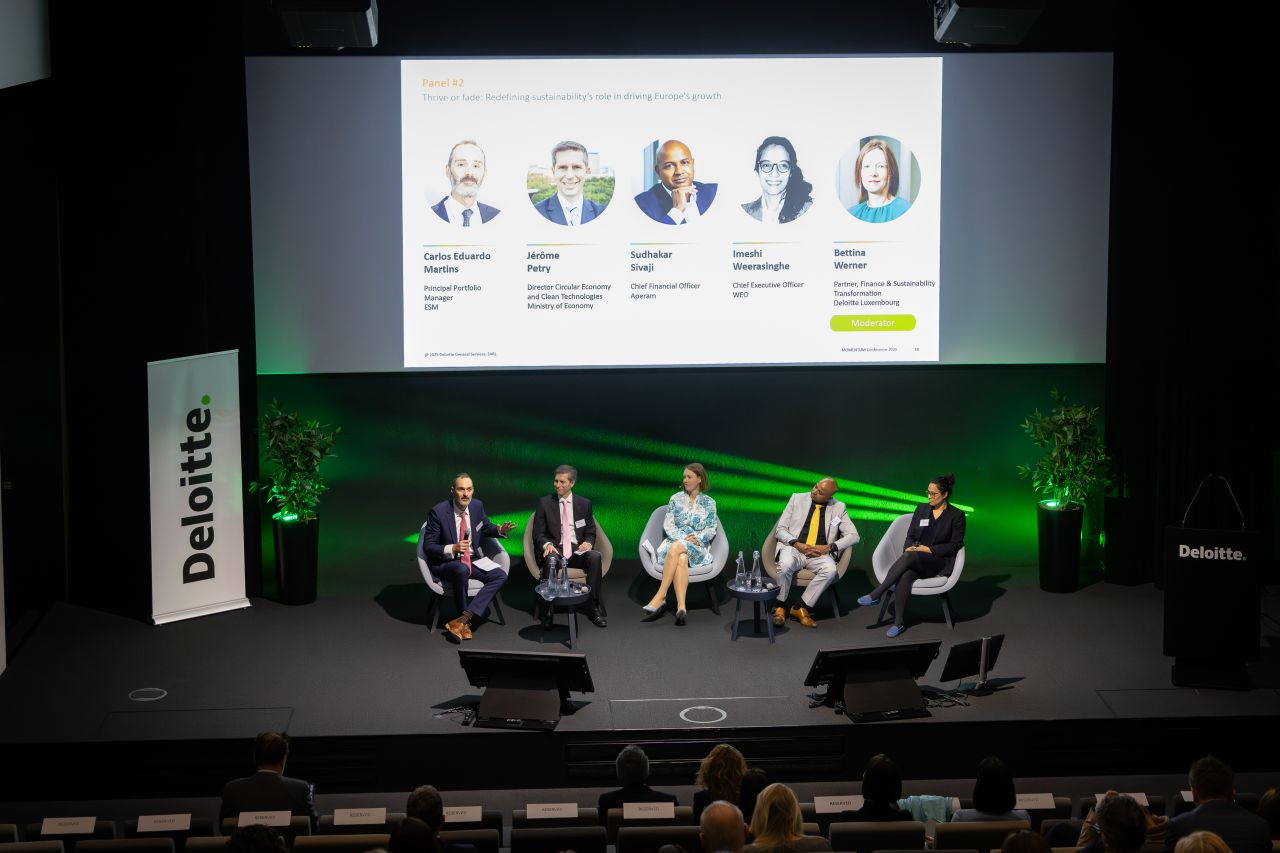
Aperam CFO Sudhakar Sivaji reflected the private sector’s balancing act: “Our primary goal is actually sustainability, it should not be a cost, but a reason as to why we thrive as a business. Today two-thirds of our business is switching to recycling.” Aperam’s efforts to embed carbon footprint considerations into procurement and capital allocation decisions, has been made clear to the public in recent years.
WEO CEO Imeshi Weerasinghe took the conversation even further, urging a rethink of our very growth models about how GDP has become the goal, while our well-being should also be considered. One may think that in a climate-constrained world, ‘enough’ might be more sustainable than ‘more.
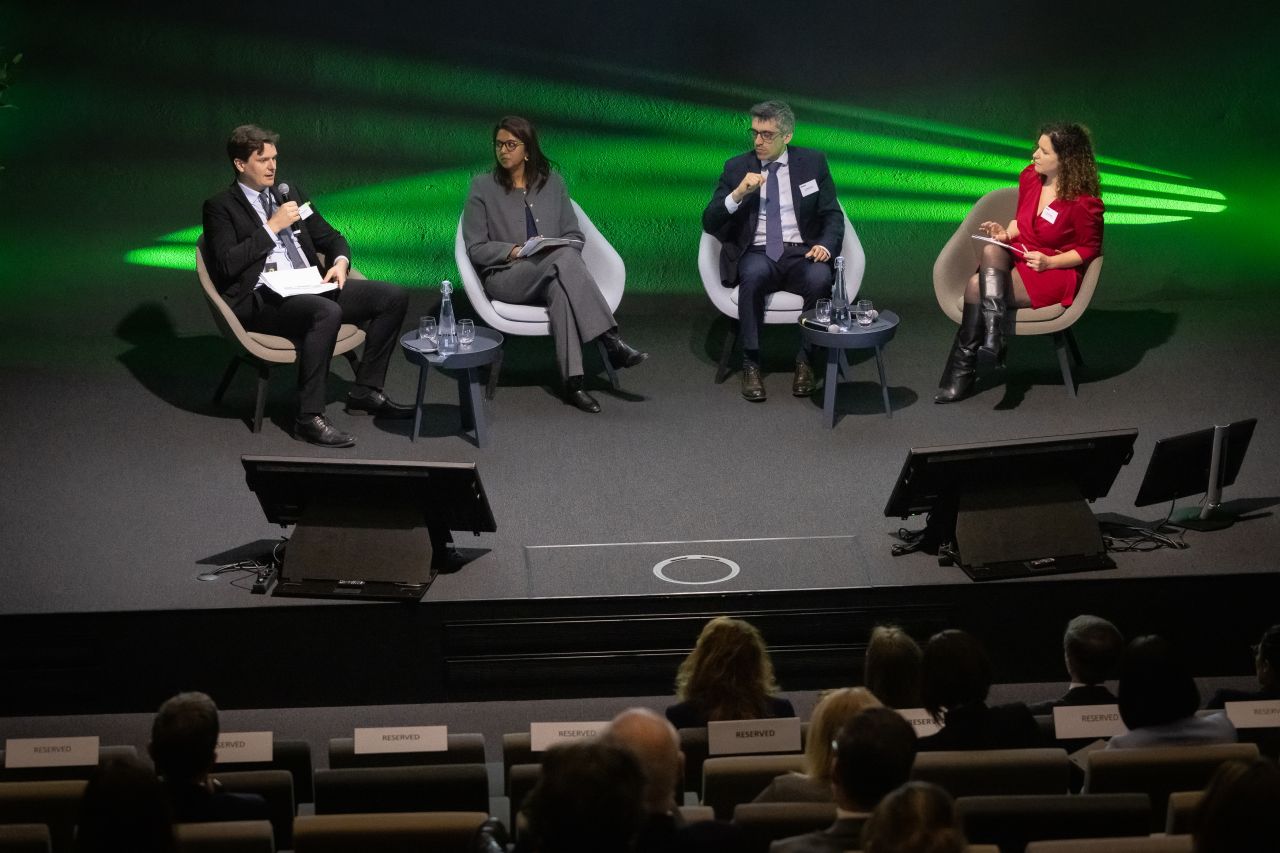
All panelists agreed that Europe’s economic future doesn’t hinge on resisting sustainability, it hinges on fully embracing it as its growth engine.
As the day came to a close, master of ceremonies and closing speaker Avanti Sharma left the audience with a powerful message of possibility, and responsibility. The young CEO of Workshop4Me, an organization empowering youth through coding and STEM, Sharma framed sustainability not as a distant goal but a present imperative.
From asset management’s soul-searching to Europe’s circular ambitions, MOMENTUM 2025 didn’t just ask whether we’re moving, it asked if we’re moving in the right direction. At a crossroads, Deloitte reminded the room of leaders and skeptics alike: “Movement without meaning is noise. Movement with meaning is impact.”


